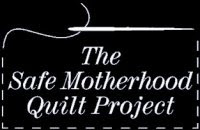We've never had a baby as a guest blogger before; but Sam is a special exception. Reposted courtesy of Birthways Family Birth Center. Sometimes it really does take a village. Let's do what we can.

My name is Samuel John Lee, my fans know me as "baby Sam" or "Sam I Am." My Mom, Cheryl, is an EMT, she was 26 weeks pregnant when she went into labor after a long shift helping others. She and I were really strong together and I stayed for just a few more days, but then I was born on 7-27-2010, weighing 2 lbs 5 oz, a full 3 1/2 months early. My due date was in the beginning of November.
It was very scary for my Mom, my Dad John, and my big sister Shelby. I was one of the lucky babies who has done better than the doctors expected, but I still need lots of help. I've been in the Neonatal Intensive Care Unit since I was born and I was so sick that Sarasota Memorial had to send me to All Children's Hospital in St. Petersburg.
It's been very hard on my family. They tell me that we live in a place called Port Charlotte. I haven't been there yet, so I'm not really sure where it is, but I know it's really far away from where I am and my mom has a hard time getting to be with me all the time. She tried to go back to her job as an EMT in Fort Myers, which I guess is even further away, but it was just too much for me, with the 12 hour shifts and all the travel...it kept her away from me way too much!... I really need her to be with me, and my sister Shelby really needs her too; so my mom and dad made the brave decision to forgo the second income because they say I'm worth "more than all the money in the world" and they just want me to get better so I can come home! That's Mom's Christmas wish... that I'll be home for Christmas! (that's what I want too)
I have heard about the amazing community of families around here who help each other out when there is a need, so I thought I'd let all of you know how much my parents, sister, and I need your help. My mom doesn't like to ask for help, so my friends at Birthways said they'd help me get the word out. I can tell my Mom's real worried and I don't want her to worry. She has helped so many other people as an EMT, I figure, others will help her too. My Dad's working real hard, but since Mom can't work right now, there is not enough money to keep the bills paid.
My mom is working hard to provide me with enough pumped breastmilk, some from her and some from a milk bank. She says that is the best thing for me, and I think so too. I am not strong or well enough to nurse on my own always. I can't wait to be able to nurse full time!
I'm so proud of my family. They have been so brave and strong for me. And when my mom's with me, I do even better! So, if you could help my family pay some of the bills that are piling up, my mom can continue being with me and maybe I'll get big and strong enough to go home before Christmas!
I don't know how to use a computer yet, but the ladies at Birthways have been very helpful. I have my own Paypal account...whatever you can see to contribute would be a big help! You can also follow my progress on facebook.























